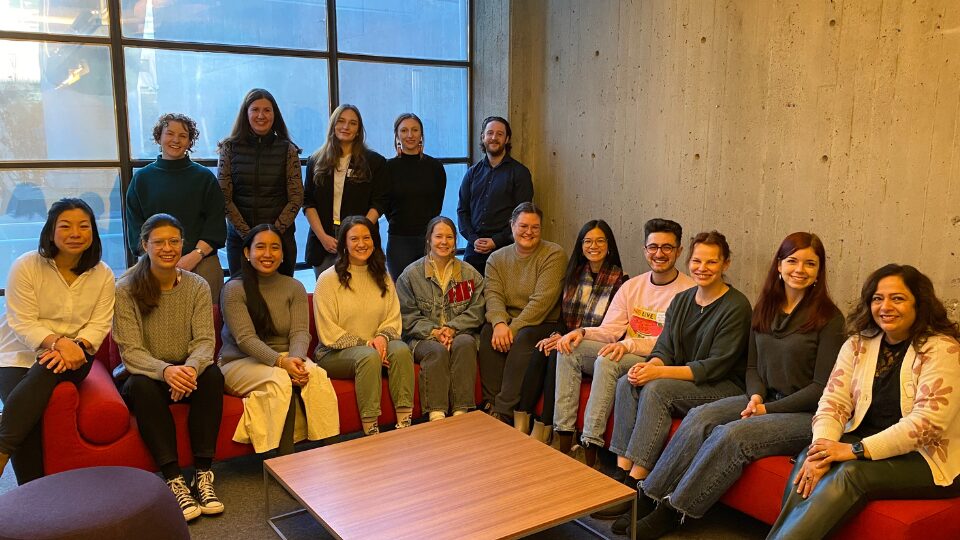Transitioning from global health to global development programming presents both challenges and opportunities—especially when it comes to adapting established ways of thinking to new funding models and accountability frameworks. For Catherine Liao, an experienced nurse and PhD candidate with over 20 years of healthcare experience including critical care, healthcare leadership, global health, and nursing education and research taking on the role of Project Manager for the University of the Fraser Valley’s (UFV) Development Impact Window (DIW) project required learning to navigate a new set of expectations.
“How you approach things in global health is very different from how you would approach it in global development—particularly the monitoring and evaluation side of things,” Catherine explained. While she brought deep knowledge of context-based approaches from health-focused research and practice, aligning with the more linear, results-focused requirements of Global Affairs Canada (GAC) introduced a new learning curve. Through Spur Change’s targeted training and knowledge-sharing opportunities, the UFV project team was able to bridge this gap—translating experience from the health sector into effective development programming that aligns with GAC’s results-based frameworks.
The UFV project team comprises a multidisciplinary team with varied experiences. While some members had experience working with GAC-funded initiatives, for others, like Catherine, it was the first time. Building off her experience with UFV’s Fund for Innovation and Transformation funded project, the requirements of GAC’s development programming were still new to Catherine who was keen to make good use of her global health background.
To support their transition to a GAC context, Catherine and her colleagues actively engaged in many Spur Change activities over the past year. Catherine highlighted the Results-Based Management (RBM) 201 workshop as particularly impactful: “I liked the RBM 201 [...] particularly [for it] taking you from the different stages of what RBM looks like and how you can apply it to your project. I gained a lot of understanding [on RBM in practice].” The hands-on approach of the training helped her reconcile the analytical perspective of a researcher with the structured, linear reporting expectations of project management: “As a researcher, you rely a lot on contextual information, whereas for reporting it's very linear. [...] RBM 201 really helped in reiterating that you can bring in context and a nuanced understanding to reporting.”
Although the UFV team is still awaiting approval on their PIP to begin project implementation, Spur Change activities have already had a measurable impact. “After RBM 201 I was more confident in mapping out what our PMF looks like, the measurements and indicators we needed to use,” Catherine noted when discussing UFV’s PIP writing process.
Likewise, through other learning opportunities such as the Making Data Collection Meaningful training, Catherine learned more about Kinaki, a digital M&E management tool, which UFV has subscribed to with their local implementing partner through a “pay what you can” model. So while much of the training content was familiar to Catherine, the training nonetheless reinforced her confidence and pointed to a helpful tool for when the project gets underway.
In reflection, Catherine also notes the relevance of the Spur Change Resource Library to her learning journey: “Spur has a lot of resources—and sometimes one resource leads to another resource and another learning. I regularly enjoy going on the website and looking at what else can I do, how else can I make my reporting and implementation process more robust.”
As the UFV team prepares for full implementation of their DIW project, the training and resources provided by Spur Change have contributed to a solid foundation, notably through the RBM 201 training and contributions to the development of a PIP aligning to GAC standards. Looking ahead at what comes next, Catherine notes that the most valuable support lies in targeted, practical training: “Many of us are at the stage where we get the theoretical concept… but it’s [more so looking at] what does GAC want, what does this template look like, especially the financial ones.”
Recognizing this, Spur Change aims to continue tailoring its offerings to the real-time needs of SMOs—ensuring that organizations like UFV are equipped not just on a theoretical level, but practically, to manage and deliver sustainable results.

